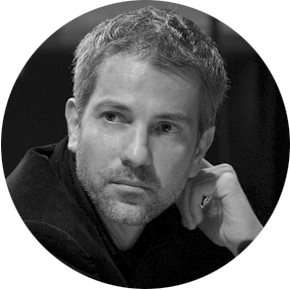Historian and sociologist Taner Akcam was born in the province of Ardahan, Turkey, in 1953. He became interested in Turkish politics at an early age. As the editor-in-chief of a student political journal, he was arrested in 1976 and sentenced to 10 years’ imprisonment. Amnesty International adopted him as a prisoner of conscience. A year later, he escaped to Germany, where he received political asylum.
Taner Akcam received his doctorate in 1995 from the University of Hanover, with a dissertation on The Turkish National Movement and the Armenian Genocide Against the Background of the Military Tribunals in Istanbul Between 1919 and 1922.
In 1988 he started working as Research Scientist in Sociology at the Hamburg Institute for Social Research. His first research topic was the history of political violence and torture in the late Ottoman Empire and early Republic of Turkey.
Taner Akcam talked to Mediamax director Ara Tadevosyan in Yerevan on April 23, 2025.
You have recently published an article in The Armenian Mirror Spectator “Thinking in Dark Times: The End of Tradition and the Crisis of Holocaust and Genocide Studies”, where you wrote in particular: “Holocaust and Genocide Studies is in deep crisis - a profound moral and intellectual collapse. At its core, this is a crisis of Holocaust Studies, triggered by Israel’s actions in Gaza. It stems from the inability - or unwillingness - of a significant portion of Holocaust scholars and institutions to take a stand. Some have even gone so far as to explicitly or implicitly support these actions.”
Is this an issue mostly for scholars and academicians, or is it something that should also worry the “ordinary” people?
I think ordinary people should also be worried, and in the second part of my article I addressed that problem and I call it a crisis of the civilization.
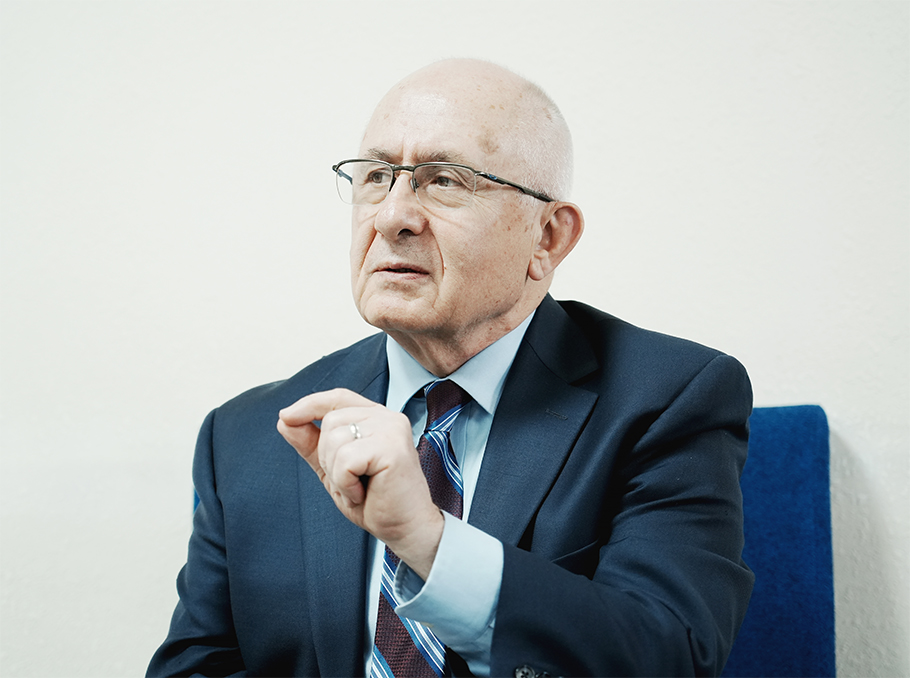
Our approach to violence throughout the human history made an important change during the Enlightenment period. Before Enlightenment, violence or mass atrocities or killing people, hundreds of thousands, wasn’t a big deal. The ancient kings erected monuments about the deeds that they did. Maybe you know that Darius the King erected a monument proving he killed so many Armenians. And with the Enlightenment, our attitude towards violence has totally changed. We considered violence as something abnormal, as something to regret, as something to dismiss, and we developed a certain moral and ethical code. Violence became something outside of normal human behavior, and because of that reason, we developed a certain theoretical way to explain the violence. We either considered it as a historic necessity for a limited period of time, unwanted human action, or we totally denied it. Denial emerged as a consequence of this approach to violence.
But now, we are back to the ancient period. I gave some striking examples in my article. One is the recent statements of the U.S. President Trump. They even made a short video clip on Gaza, and they proudly developed the entire genocide as a construction project, and they proudly announced how beautiful this construction project is. This is really something new in our age, and this is alarming. Today in the West people are watching the extermination of a group of people sometimes with joy and with support. This is something very new and very scary. We are living in a very deep moral crisis of humanity.
Some might argue that it is naive to expect a different kind of attitude today, when international relations often resemble a kind of “jungle”, where power seems to override principles, and “international law” feels like just empty words. Can we expect moral principles from politicians in these circumstances?
After Second World War, we created an international system based on rule of law. This is the understanding in Western hemisphere. In Europe, when they approach to Turkey, they talk about democracy, human rights, and so on and so forth, and criticize others. The West believed that they are the champions of certain international, moral, universal values. And they are now discredited those. Of course, you can say that there is nothing new in that attitude of West. You can always argue rightly so, that it was no different in 16th, 17th, 18th centuries in Latin America or in Africa.

But at least after the Second World War, they developed the Genocide Convention, Human Rights Convention, International Criminal Court, the Court of Justice, and many institutions. And the West believed that they built their legitimacy on these international norms. And despite this “jungle” character of international relations, they always considered this as a light in their hand, as a banister, they call it, that they hold and they walk accordingly.
They destroyed all this with their own hands, now openly and clearly supporting the genocide. Take Germany as an example. Germany is now suppressing any ideas that criticize Israel’s policies.
We’re speaking on the eve of the 110th anniversary of Armenian Genocide. Ten years ago, the Centennial was widely discussed around the world. And today the world is not entirely silent but the level of attention and engagement seems noticeably diminished. Do you think this is, in some sense, natural and people and politicians believe that they paid their respects a decade ago, and consider that to have been sufficient?
Armenian Genocide Centennial was an important turning point. Turkey understood after 2015 that Armenian Genocide is not a big international problem for them. Because the United States’ recognition was a symbolic gesture and nothing else, it didn’t follow any consequences.
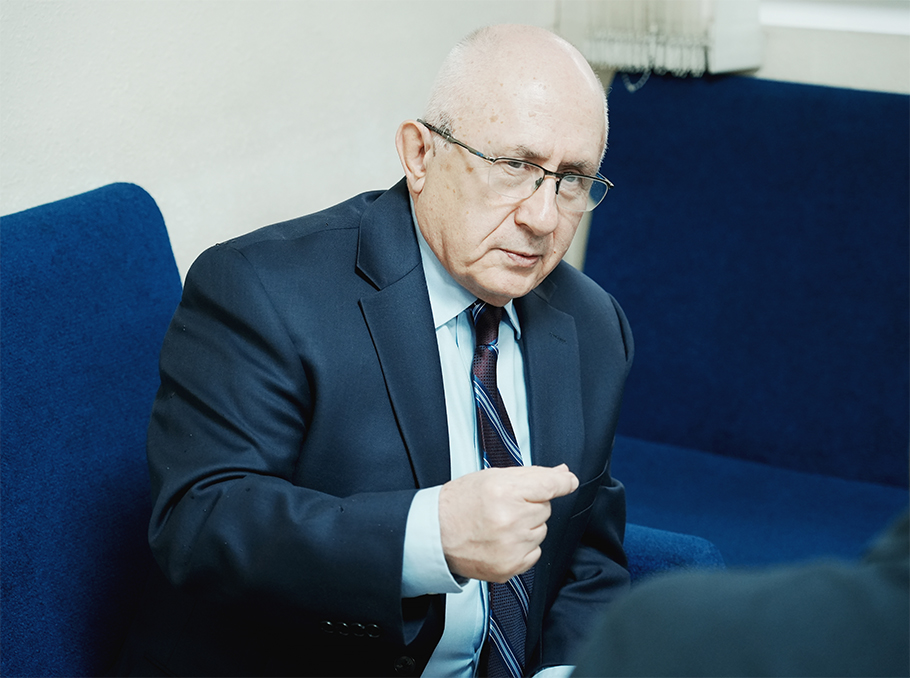
And there is another factor. There is a Turkish saying which I was told comes from Armenians: “Every person is sorry only for his own son”. Unfortunately, people are not so sensitive to what happens to the others, to other groups. So Armenians, being alone in Karabakh issue is the same as the Palestinians being alone in their own situation. There is indifference, unfortunately.
But I believe there’s another factor: the current Armenian government doesn’t appear particularly engaged in promoting international initiatives related to the Armenian Genocide. Armenian Foreign Minister has publicly stated on several occasions that this is no longer a priority in the country’s foreign policy. And I think this has influenced how the international community responds to the Armenian Genocide today.
The Armenian opposition is saying that the current government is beginning to question the Armenian Genocide as it wants to normalize the relations with Turkey. As someone observing from the outside, and as a person who has worked on Armenian Genocide for decades, do you see a danger here?
I have read some statements by Armenian Prime Minister Pashinyan and I didn’t find anything that denies the historic fact. Maybe it was a new interpretation. And my reaction is that every generation has the right to redefine its position towards history.
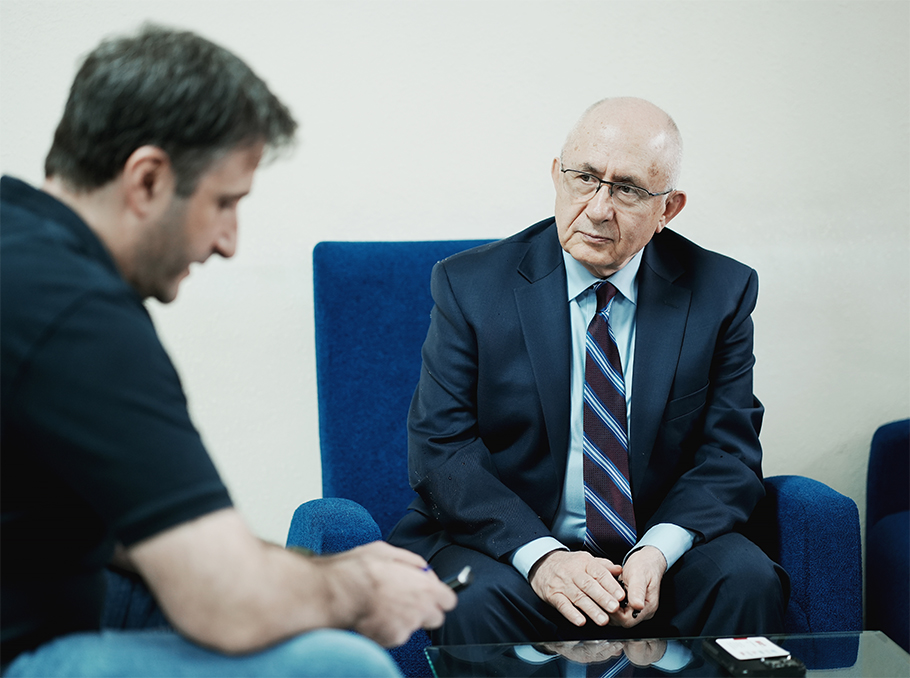
This is a very normal procedure. History is not something that should remain totally unchanged. History is not discovering some hidden facts and when discover them it is the end of the history. The field history is actually a construct. The fact is always there, but we construct the stories and these stories change over the years. Every generation reinterprets history according to where this individual is, how he looks at itself and its past.
So for that reason, for me, the call from anybody saying that we should rethink how we approach the Armenian Genocide is a very legitimate call. And you may differ on that topic, have different opinions. This is how I understand Pashinyan’s some statements.

Let me tell another important point. We should avoid the temptation to make the history a weapon against the others. This is a very dangerous way of making politics. Sticking on Armenian Genocide and making it a weapon in the hand is not a rescue. It will not save you from doing something wrong. The major issue is how you replace a historic event in your today’s approach to world and to yourself. So, in that regard, I would ask individuals not to make this issue a point of a weapon, aggressively using against others, but indeed, seriously consider about how we put the genocide, a historic fact, in our current relations with each other.
Yes, but the conversation, as a tango, requires two. And when it comes to Turkey, and you know better than anyone, it is denying the fact and is not ready for any conversation on that topic, because they say - it didn’t happen.
I talked about the conversation within Armenia - within different groups in Armenia. A continuous conversation about past, and what this past would mean in current relations. And with Turkey, to my knowledge, and correct me if I’m wrong, none of the Armenian governments made the genocide issue as a pre-condition to normalize the relations. And it hasn’t changed, to my knowledge.
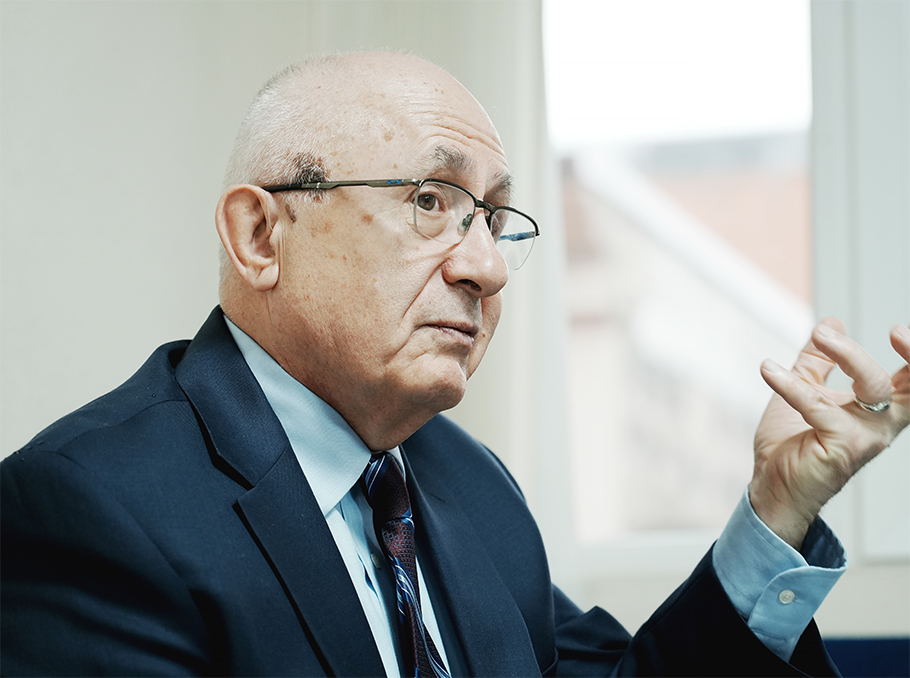
Turkey’s problem with Armenia is not the Genocide recognition. Turkey’s problem with Armenia today is only Azerbaijan. Turkey has very strong economic and political ties with Azerbaijan, and it seems to me that Azerbaijan determines Turkey’s attitude towards Armenia.
Ara Tadevosyan talked to Taner Akcam












